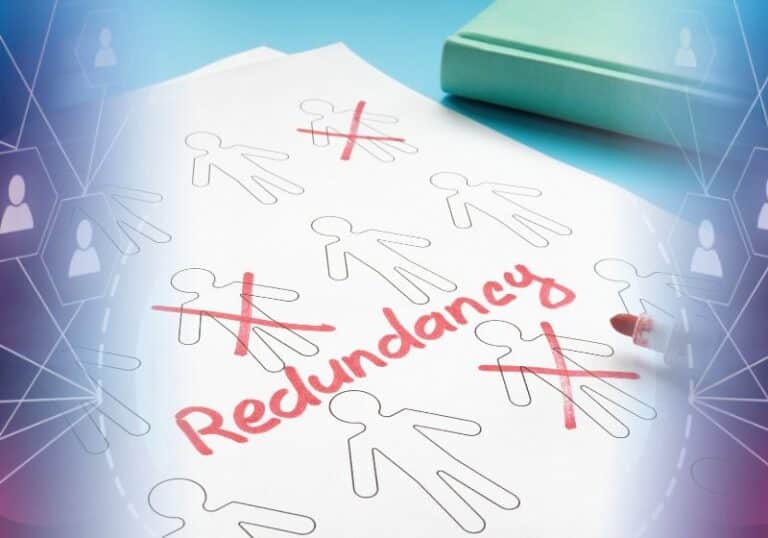ACAS: Updates on Mental Health Guidelines in the Workplace

ACAS, the Advisory, Conciliation and Arbitration Service, recently released new guidance aimed at helping employers enhance their support for employees by making adjustments for mental health in the workplace1. While there are already well-established legal obligations to make reasonable adjustments for disabled employees, understanding how this applies to individuals with mental health difficulties can be challenging. This article provides a summary of the ACAS guidance and offers practical advice for employers on implementing these adjustments.
Duty to Make Reasonable Adjustments
Employers must not discriminate on the basis of disability under the Equality Act of 2010 (EQA), whether it be indirect (the policy applies universally but disabled employees are nevertheless at a disadvantage) or direct. As such, employers have a duty to make reasonable adjustments to their current policies so that they ensure a workplace rooted in equal opportunity. Note that said adjustments must be operationally feasible – in other words, without excessive cost or disruption to the business.
Disability is a sensitive topic, and while certain employees may fall under the broader category of ‘disabled’, many will not identify themselves as such. Conversely, others still will suffer with their mental health in the workplace, yet not be classified as disabled.
In both situations, it can be difficult for the employer to know where to stand, and what – if any – steps they must take. For instance, if you as an employer have no prior reason to know if any employee is disabled, or if the definition under the Equality Act doesn’t apply, then legally, you have no specific duty to provide adjustments.
However, the story doesn’t end there. Employers can still take positive action to support their employees, their mental health at work and their sense of wellbeing. Under the new guidelines, ACAS encourages businesses to do exactly that, even if your employee’s difficulties do not amount to disability.
By doing so, not only can companies increase the productivity of their staff, but they can also benefit from a decrease in staff turnover, sickness absence and employee burnout.
Who do reasonable adjustments apply to?
Reasonable adjustments apply to the following under the law:
- Workers
- Contractors and self-employed people hired to personally do the work
- Job applicants
When must employers make reasonable adjustments?
Employers must make adjustments when:
- They know someone is disabled (or are expected to know)
- A disabled person that fits under the previous three definitions asks for adjustments
- A disabled person is facing difficulty with any part of their job
- An employee’s absence, sickness or delay in returning to work record is due or linked to their disability
Reasonable Adjustments for Mental Health in the Workplace
Employee mental health as a topic may well include disability, but it is far from limited to it. Instead, it encompasses several aspects of an employee’s psyche, including their emotional, psychological and social wellbeing.
The new guidance makes the important distinction that certain issues can arise from certain life events, may be built up gradually over time, or may even fluctuate from one moment to the next and are not necessarily a permanent state of affairs.
As a result, reasonable adjustments may vary over time. Employers should, therefore, adopt an individualistic approach sensitive to change. Issues with mental health at work can also be difficult to spot, and so it is imperative that employers take steps to foster an open environment wherein employees feel able to speak about the issues they face without negative repercussions.
What steps can employers take?
There are a number of practical, proactive ways in which employers can make little changes for a large effect. Consider the following steps when assessing your employees:
1. Change roles and responsibilities
Staff undergoing mental health difficulties may face difficulties with their day-to-day tasks. One adjustment that doesn’t require wholesale change is switching around stressful responsibilities and tasks between existing staff so that the individual affected feels more capable and less overwhelmed.
2. Review working relationships and styles of communication
It may sound obvious, but different people communicate differently. Conflicts can often arise when methods of communication and working pattern differ. Consider reassigning your staff in such a way that those who work better together are afforded the opportunity to do so.
3. Reassess your working environment
Providing dedicated rest areas, allowing for remote work where possible and rearranging employee’s workspaces can help improve daily work-related stress that may exacerbate mental health difficulties.
4. Offer additional support
It’s hard to know exactly what people are going through at any given time. Consider offering regular check-ins, assigning a buddy or mentor and even just having more open, heart-felt conversations with your staff. Sometimes, all it takes is a little empathy. However, one should always be mindful that some employees may find talking about the difficulties they face daunting. Be mindful to couch your approach with sensitivity and understanding at all times.
5. Review policies
It is crucial to know whether or not management understands and consistently implements policy, and if it allows flexibility for changing mental health conditions and provides the opportunity for employees to provide feedback. If not, then a review could be the next best step. The key factors when rewriting policy are always a clarity of purpose, accessibility and a caring tone; ensure that your new policy adheres to these core tenets and you will see great improvements in the way they are implemented and understood.
6. Know when to refer
Despite best efforts, situations can at times spiral out of control. As such, it’s always best to know when you should refer the situation on to others, be they Occupational Health specialists or Human Resources experts like HR:4UK. If you are unsure of what to do, then why not get in touch with our team of dedicated specialists today.
7. Track changes
Another key factor in determining the success of your adjustments is to record their impact. Some alterations may take time to work, and others may need further adaptations in order to cater to everyone’s needs. Moreover, it will also be the case that certain adjustments simply do not work; monitor the changes and keep a record of further amendments so that you can build a tried and tested case.
8. Review your adjustments
In addition to recording the changes made to your workplace, it’s also important to review their effectiveness. It may be useful to arrange follow-up meetings with your employee(s) to assess whether or not the adjustments are beneficial or not.
If you have a specific case that you’re unsure about, or you need help crafting a robust policy, then why not get in touch with our dedicated team of experts on 01455 444 222 or email: [email protected].
References:
1. Advisory, Conciliation and Advisory Service (ACAS) (May 2023). Reasonable Adjustments for Mental Health. https://www.acas.org.uk/reasonable-adjustments-for-mental-health
James Dawson
James is our resident wordsmith and has many years of experience in writing about a huge variety of topics from HR to Occupational Health and beyond. He has been published in numerous magazines and news outlets, and especially enjoys researching and analysing the current trends in the modern business world.




